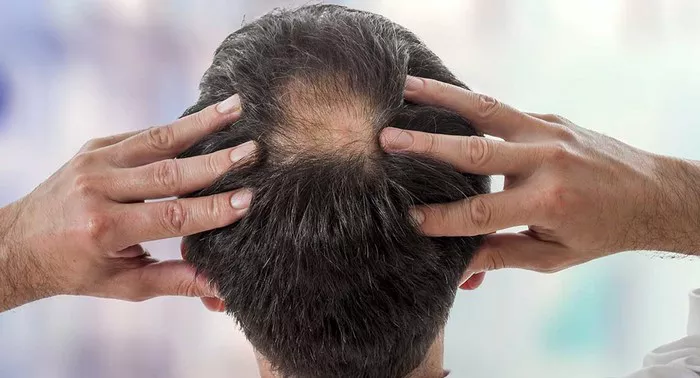Hair loss is a concern that prompts us to question every aspect of our hair care routine, including the water temperature we use when washing our hair. Some believe that using warm water may contribute to hair fall, while others dismiss it as a myth. In this article, we will delve into the relationship between warm water and hair health, addressing the question: Can warm water cause hair fall? By examining the available information, we aim to provide you with a clear understanding of this topic.
The relationship between water temperature and hair
Water temperature directly affects hair health. Cold water seals hair cuticles, boosting shine and reducing frizz. Warm water opens cuticles for effective cleansing and scalp circulation. However, hot water strips natural oils, leading to dryness and brittleness. Ideal is lukewarm water for washing, preserving oils while cleansing. Cold water for final rinses enhances shine, while hot water can fade color and damage hair. Tailor water temperature to hair type and health, considering its impact on cuticles, moisture, and overall appearance. A balanced approach ensures optimal hair care and vitality.
Benefits of shampooing with warm water
Shampooing with warm water offers several benefits for hair and scalp health:
1. Effective Cleansing:
Warm water helps to open up the hair cuticles, allowing the shampoo to penetrate and cleanse more effectively, removing dirt, oil, and product buildup.
2. Scalp Stimulation:
The warmth of the water promotes better blood circulation to the scalp, which can aid in hair follicle health and growth.
3. Relaxation:
Warm water provides a soothing and relaxing sensation during shampooing, contributing to a more enjoyable hair care routine.
Remember, while warm water has its advantages, avoid excessively hot water as it can strip natural oils and cause dryness. Find a temperature that is comfortable for you and suits your hair type and health.
For Warm Water: Potential Concerns
While warm water has its benefits, excessive heat can pose concerns for your hair:
1. Scalp Irritation:
Very hot water can strip the scalp of natural oils, leading to dryness and potential irritation.
2. Hair Shaft Damage:
Over time, excessive heat can weaken the hair shaft, making it more prone to breakage and potentially contributing to hair fall.
Finding the Right Balance
Achieving a balance between water temperature and hair health is crucial:
1. Lukewarm Water:
Using lukewarm water is generally recommended for hair washing. It effectively cleanses without causing excessive dryness or damage.
2. Cool Rinse:
A cool water rinse after washing can help seal the cuticles, enhance shine, and lock in moisture.
Addressing Hair Loss Concerns
Hair loss concerns can be distressing, but addressing them effectively involves a holistic approach. Firstly, consult a healthcare professional to identify underlying causes, such as hormonal imbalances, nutritional deficiencies, or medical conditions. Adopt a balanced diet rich in vitamins, minerals, and proteins that support hair health. Use gentle hair care products and avoid excessive heat styling. Prioritize scalp hygiene and consider stress-reducing activities like yoga or meditation. Supplements like biotin and omega-3 fatty acids can aid hair growth, but consult a doctor before starting. Lastly, explore treatments like minoxidil or finasteride under medical supervision. Remember, individual solutions vary, so patience is key.
See Also: [Revealed!] How Often Can I Wash My Hair with Baking Soda?
Conclusion:
While warm water has its benefits for scalp health and effective cleansing, the idea that warm water directly causes hair fall is not entirely accurate. The key lies in moderation and balanced care. Opt for lukewarm water during hair washing to enjoy the advantages of improved circulation and effective cleaning, while avoiding excessive heat that could lead to irritation or hair shaft damage.
Remember that hair health is influenced by a range of factors, and singular practices like water temperature are just one piece of the puzzle. If you’re experiencing significant hair loss, it’s advisable to consult a healthcare professional or a dermatologist to identify the underlying causes and develop a tailored approach to maintaining healthy and vibrant hair.
In your journey to maintaining strong and beautiful hair, the temperature of your water plays a role, but it’s the collective effort of your overall hair care routine that truly makes a difference.


